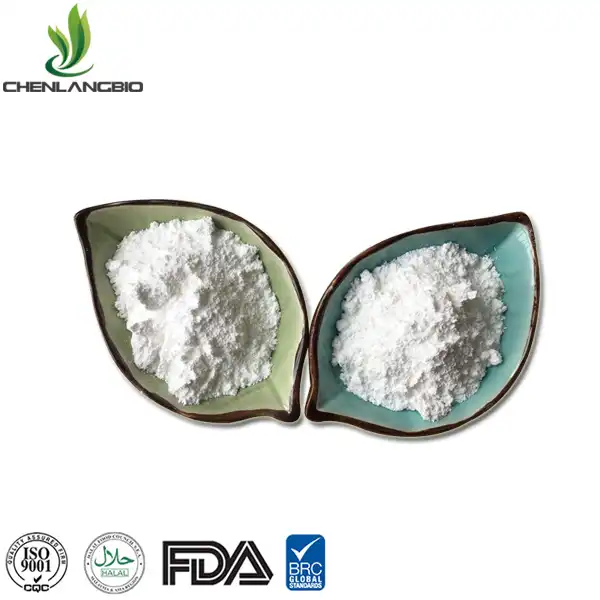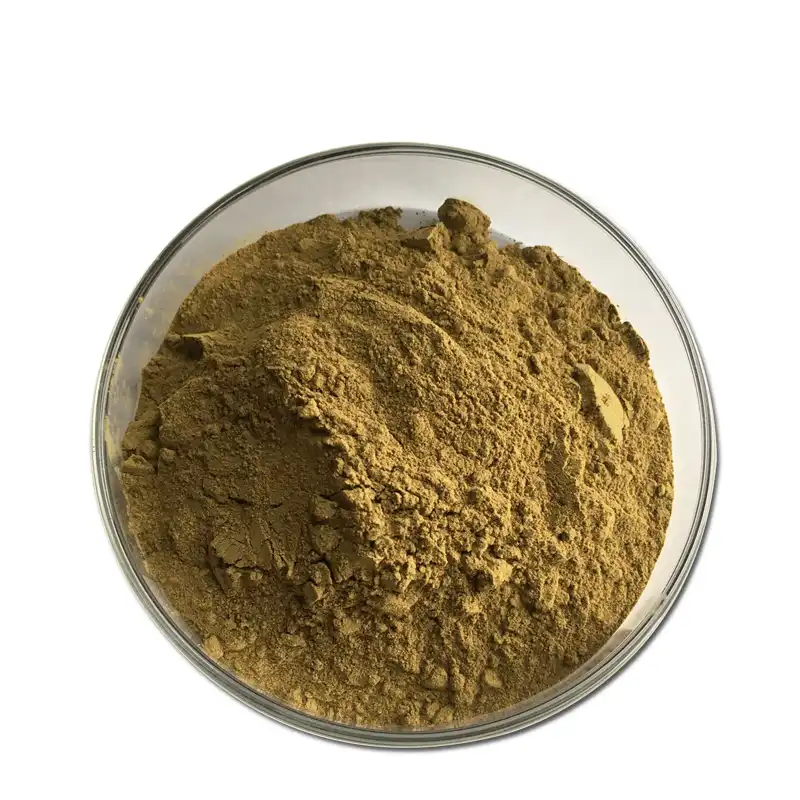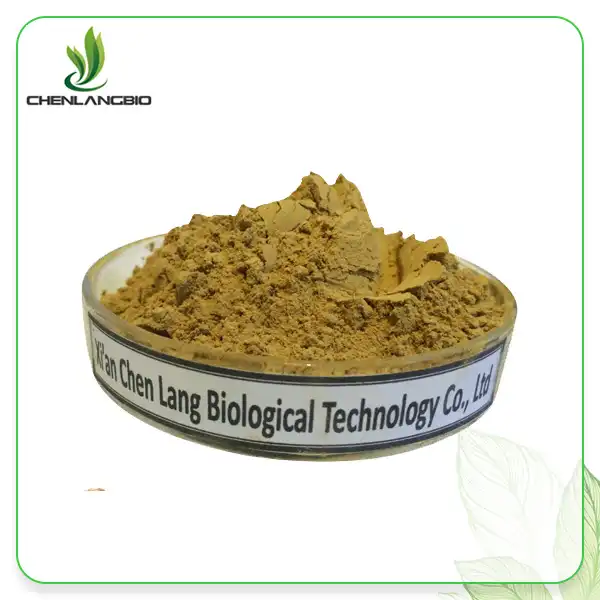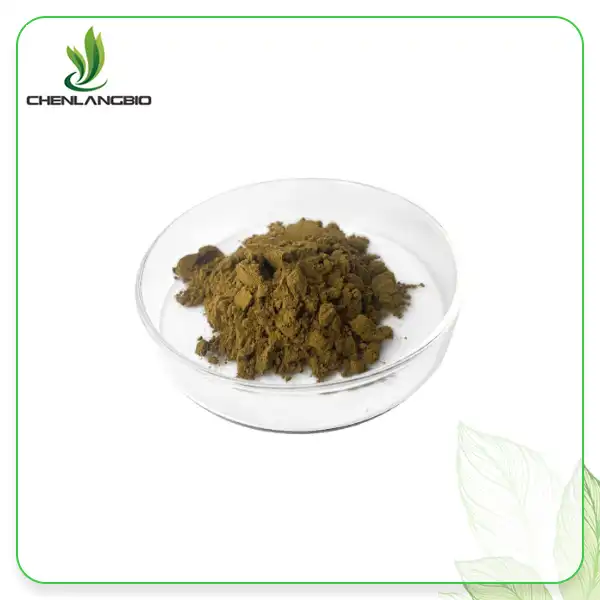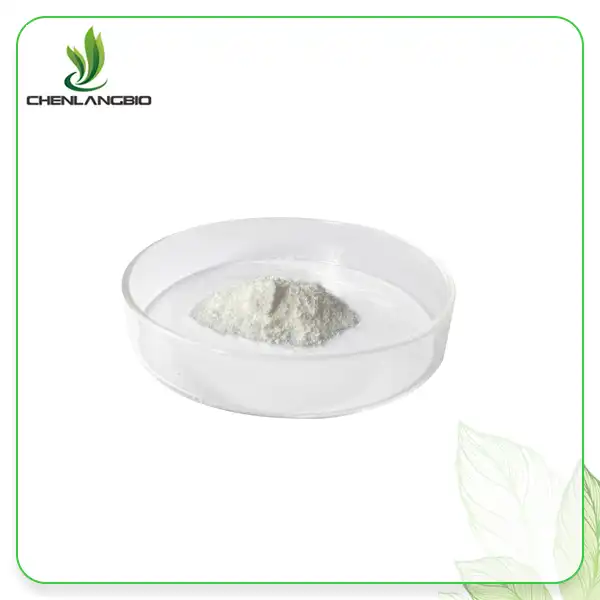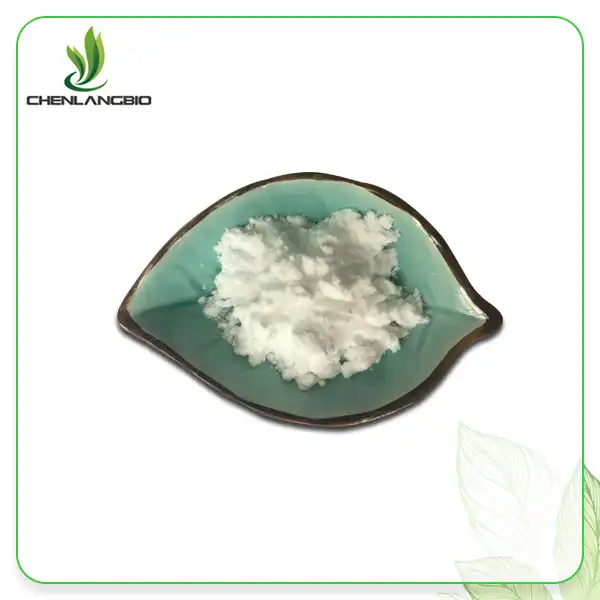Does Alpha-GPC Affect the Liver
2024-07-22 14:29:40
Alpha-Glycerylphosphorylcholine (Alpha-GPC) is a popular nootropic supplement known for its cognitive and physical performance benefits. However, as with any supplement, it is essential to consider its effects on various organs, including the liver. This article explores whether Alpha-GPC affects the liver by addressing some frequently asked questions related to its use and safety.
How Does Alpha-GPC Work in the Body?
Alpha-Glycerylphosphorylcholine is a choline compound that is notable for its capability as a forerunner to acetylcholine, a synapse expected for memory and consideration. Additionally, Alpha-GPC's capacity to increase growth hormone secretion, which has the potential to improve physical performance, has attracted attention.
When used, Alpha-GPC eventually moves to the liver via the gastrointestinal bundle at a rapid rate. The liver, an organ that is crucial to the process of detoxification and the metabolism of nutrients, is where a significant amount of Alpha-GPC processing takes place. The metabolic changes that Alpha-GPC goes through here might affect its bioavailability and impacts on the body.
By studying Alpha-GPC's interaction with the liver, one can gain a better understanding of the compound's general digestion as well as its potential effects on liver function. This data is vital for deciding the wellbeing and adequacy of enhancements as to Alpha-GPC's metabolic pathways and any expected consequences for liver wellbeing.
A comprehensive explanation of how Alpha-GPC digestion in the liver enhances its mental and actual presentation benefits is anticipated to be provided by subsequent research, ensuring its informed use and expanding its true potential as a nutritional supplement.
Can Alpha-GPC Cause Liver Damage?
Although the liver damage has been linked to dietary supplements in the past, recent research indicates that Alpha-GPC generally carries a low risk in this regard. A few studies and user feedback indicate that Alpha-GPC is tolerated well even after prolonged use.
Alpha-Glycerylphosphorylcholine has not been linked in any significant way to hepatotoxicity in either preclinical or human trials. Nevertheless, as with any supplement, careful monitoring is advised, particularly when using higher doses or for prolonged periods of time. By carrying out routine liver function tests, you can learn a lot about any potential effects on the health of your liver.
Talk to your doctor before starting Alpha-GPC supplementation, especially if you have a liver condition or are taking a medication that could interact with Alpha-GPC. You are able to make adjustments based on your health profile and risk factors thanks to this proactive approach, which ensures that the medication is used safely.
Alpha-GPC appears to be well tolerated and does not pose significant hepatotoxic risks, according to current knowledge. However, for overall health protection, responsible use and monitoring remain essential.
Does Alpha-GPC Provide Any Benefits for Liver Health?
Alpha-Glycerylphosphorylcholine and other choline-containing compounds have recently been shown to have the potential to support liver health. The liver's lipid metabolism depends on choline, which helps prevent conditions like fatty liver disease. This essential nutrient makes it easier to make phosphatidylcholine, which is a crucial part of cell membranes that helps the liver transport and burn fat.
While explicit examinations straightforwardly inspecting Alpha-GPC's effect on liver wellbeing are restricted, its capability as a choline forerunner recommends promising results. Alpha-GPC may help prevent hepatic steatosis, a common problem caused by lipid accumulation in liver cells, and preserve liver function by ensuring adequate choline levels.
Alpha-GPC's potential therapeutic value is highlighted by its role in providing choline, despite the fact that more research is required to clarify its precise mechanisms and benefits for liver health. In situations where choline intake may be insufficient, incorporating Alpha-GPC into dietary strategies to support liver function may be beneficial.
Similarly as with any enhancement, counseling medical services suppliers stays fundamental, particularly for people with existing liver circumstances or explicit wellbeing concerns. Through appropriate dietary supplementation strategies, this strategy ensures that informed decisions are made and that individual guidance is provided on how to improve liver health.
Are There Any Side Effects of Alpha-GPC on the Liver?
The side effects of Alpha-Glycerylphosphorylcholine are generally mild and infrequent. Commonly reported side effects include headache, dizziness, and gastrointestinal discomfort. Specific adverse effects on the liver are rare, with no significant evidence suggesting hepatotoxicity.
However, individual responses can vary, and those with pre-existing liver conditions should exercise caution. If you experience any unusual symptoms or suspect liver-related issues while taking Alpha-GPC, it is crucial to seek medical advice promptly.
How Should Alpha-GPC Be Taken to Minimize Liver Risks?
It is essential to adhere to Alpha-GPC's recommended dosages and guidelines to reduce potential risks to liver health. Depending on individual tolerance and desired outcomes, daily doses typically range from 300 to 600 mg. Use higher doses with caution and under medical supervision for monitoring.
Alpha-GPC can be taken with food to increase absorption and reduce discomfort in the gastrointestinal tract. Liver function is further supported by adequate hydration and a well-balanced diet that ensures adequate intake of essential nutrients. These practices aggregately advance protected and powerful utilization of Alpha-GPC while focusing on generally liver wellbeing.
Conclusion
Alpha-Glycerylphosphorylcholine is a widely used supplement known for its cognitive and physical performance benefits. Current evidence suggests that it does not cause liver damage and may even support liver health due to its choline content. However, individual responses vary, and it is crucial to follow recommended dosages and consult with a healthcare provider, especially for those with existing liver conditions.
For more personalized advice and further information on Alpha-GPC, feel free to contact us at admin@chenlangbio.com.
References
Lifetropics. (n.d.). The Ultimate Guide to Alpha GPC Supplements.
SuppleWiki. (n.d.). Alpha-GPC: Benefits, Side Effects, Best Time to Take It & More.
Red Dragon Nutritionals. (n.d.). Alpha GPC: Unveiling Its Science-Backed Health and Cognitive Benefits.
Nootropicology. (n.d.). Alpha-GPC Review: Nootropic Benefits, Side Effects & Dosages.
Onnit Academy. (n.d.). Alpha GPC Benefits, Uses, and Side Effects.
Examine. (n.d.). Alpha-GPC benefits, dosage, and side effects.
WebMD. (n.d.). ALPHA-GPC - Uses, Side Effects, and More.
Dr. Axe. (n.d.). Alpha GPC Supplement Benefits, Dosage and Side Effects.
Peak Nootropics. (n.d.). Alpha-GPC: Benefits, Uses, and Side Effects.
Vida Optima. (n.d.). Best Time to Take Alpha-GPC for Different Health Benefits.
Send Inquiry
Related Industry Knowledge
- What is Cactus Extract Powder Made From?
- How Can Pure Fisetin Enhance Cognitive Function and Support Brain Health
- Bulk Dimethylmethoxy Chromanol: A Formulator’s Guide
- Exploring the Nutritional Profile of Red Wine Extract Powder
- What is Different Between Low Molecular and High Molecular Hyaluronic Acid Powder
- Is Berberine Hcl Powder Good for Weight Loss
- Apple Polyphenol Extract Weight Loss
- Different Between Alpha Arbutin and Beta Arbutin Powder
- Is It Safe to Take Pure Fisetin Powder Every Day
- Where to Buy Amygdalin Vitamin b17


